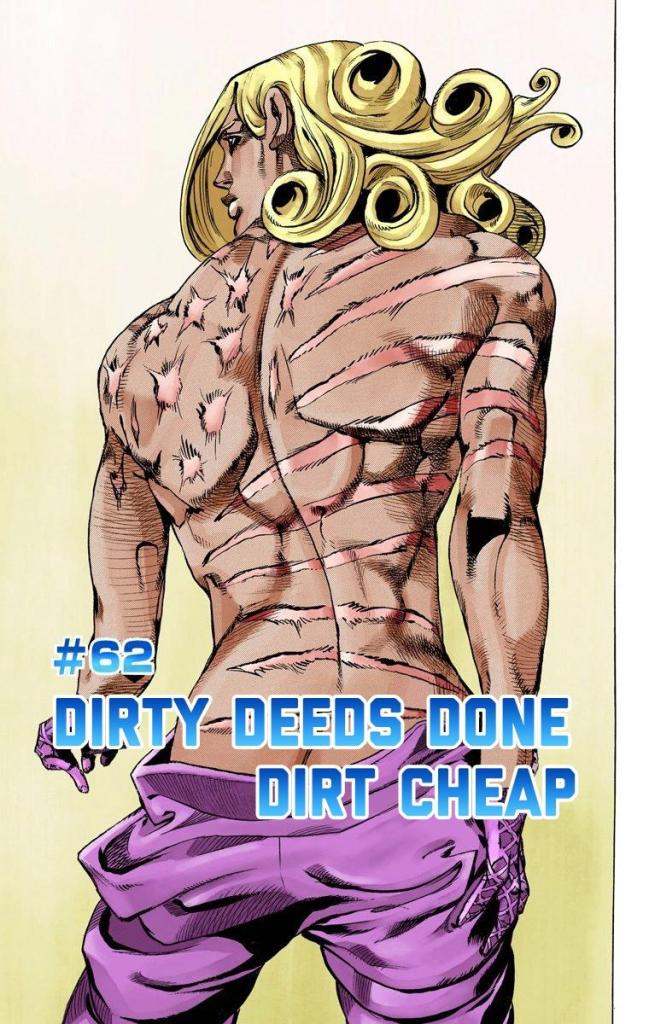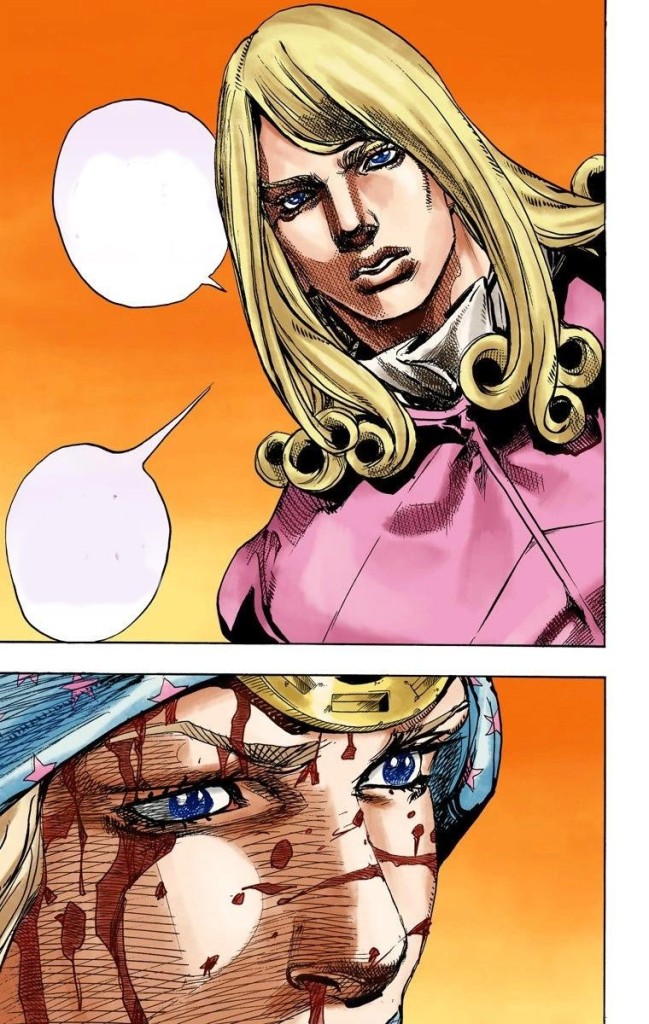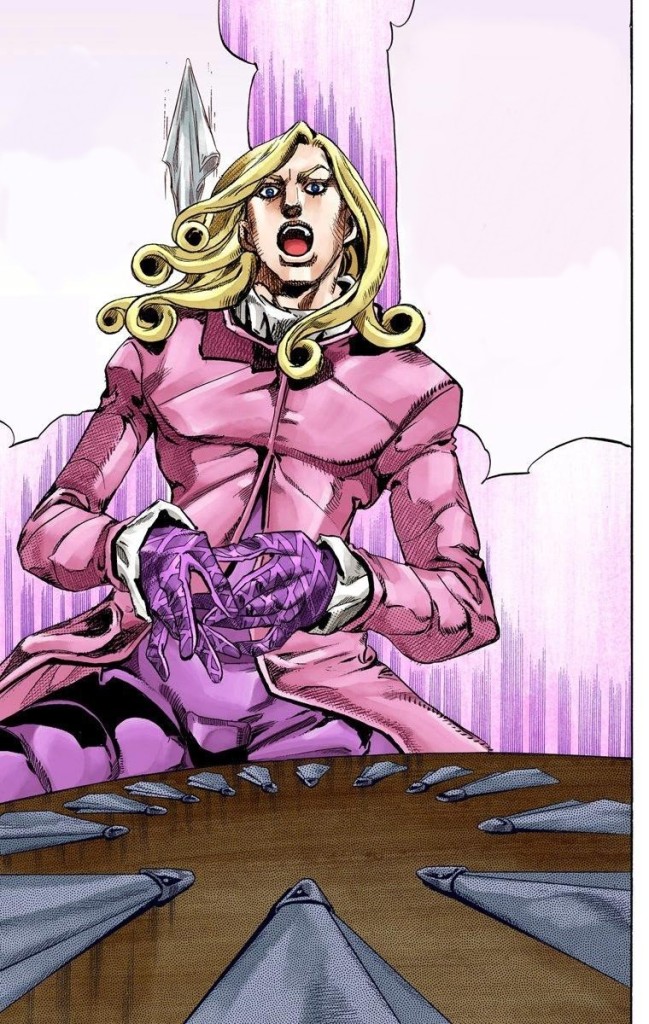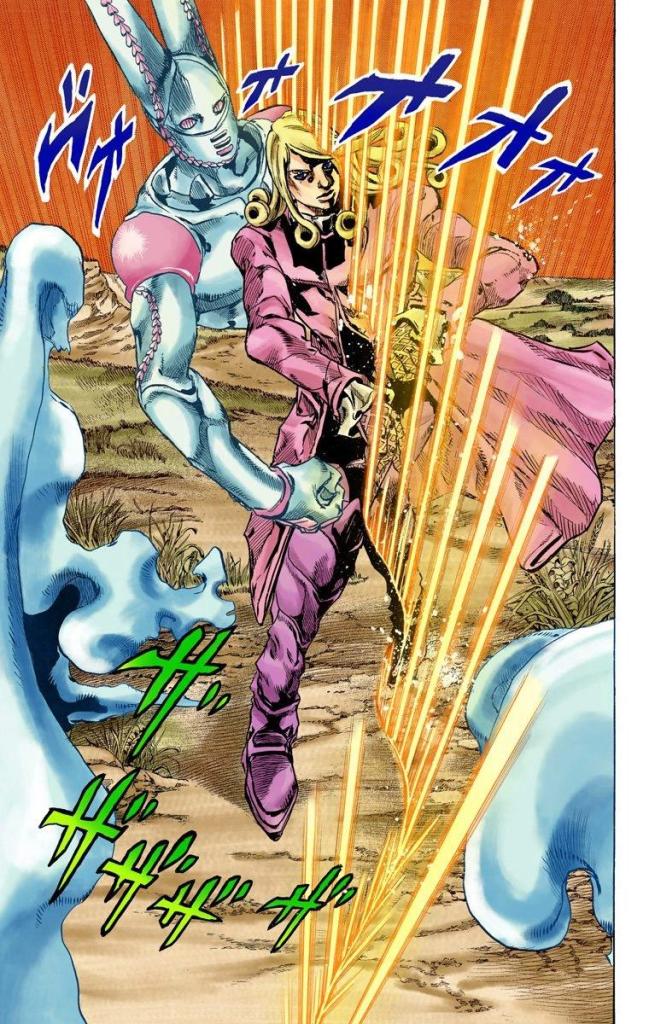Steel Ball Run is the most celebrated manga of Hirohiko Araki’s career. It is lauded for its action, creativity, tremendous art, and character depth. Johnny Joestar is the most nuanced Joestar to date, full of weakness and requiring redemption. Gyro Zeppeli is the most charismatic and well-developed Zeppeli in the franchise. Even Diego Brando, while nowhere near as iconic as the original DIO, is a far more dynamic and interesting character than his predecessor. And yet, more than any of those names, one stands out: Funny Valentine.
The main antagonist of the series, Funny Valentine, is regarded with universal praise. Not only is he seen as one of the best villains within the franchise, but also across the medium of manga. Many fans attribute this to his selfless and unwavering patriotisms. But what is patriotism? In Cicero’s De Oratore, patriotism is asserted as a positive virtue to possess, especially within the republic. A sense of duty and love over one’s country. In section 44, Crassus adds that patriotism should extend to show a holistic devotion, stating “[the country’s] spirit, customs, and discipline ought to be our first objects of study…”
I imagine this is how a good number of fans view Funny Valentine’s motives and actions. He is driven by a need to defend his country as if it were his family. However, I argue that this is incomplete. While Funny is patriotic, there’s something else going on here. He also sees the USA as a chosen land and will use the presence of the Saint’s Corpse as proof. This is not just patriotism. This is American Exceptionalism.

The concept of American Exceptionalism can be traced back as far as the landing of the pilgrims in 1620. Famously, Puritan John Winthrop exclaimed “for we must consider that we shall be as a city upon a hill. The eyes of all people are upon us…” This sets a religious precedent on the holy sanctity of the New England colony.
The American Revolution and the nation’s subsequent independence drove this further. Fueled by the European Enlightenment ideals, the United States of America saw itself as a champion for universal human rights, democracy, and liberty. In the Rights of Man, Thomas Paine said “the revolution of America presented in politics what was only theory in mechanics.” America set itself apart from the reigns of kings and emperors; the true republic. It was to be above it all. The land of the free.
This is American myth-making. The nation did indeed set itself apart, but its virtues were never truly extended to all. That was an intentional design in the formation of the republic. However, this article is not meant to be a political hit-piece on the American state and its formation, but as a lens to view Funny Valentine. The patriotism that he follows is tinged in mythology. It doesn’t just view America as a homeland worth protecting, but a land that is inherently more important than anything else.


In my opinion, there are two elements that define Funny Valentine. The first is his relentless devotion to his exceptional America. Much like fans would say, none of his actions are done in self-interest. Funny inherited his patriotism from his father. Both are veterans in civil wars. His motives are guided by the beliefs imparted to him, as well as ones he forged in service. His main objective is to control the Saint’s Corpse for the good of the country. He is even willing to throw away his pride and bargain with Johnny just to achieve this.
The other element that defines him is his belief that those who act first dictate the flow of the world. He uses the example of table napkins. Whoever takes the first napkin dictates the direction where all subsequent napkins will have to be taken from. This is representative of Funny’s foreign policy. He wants to put America in the position to make all the first moves, so that all other countries have to follow its lead. This level of control, in his mind, ensures American interests and safety.
What I find really fascinating about the synthesis of these two elements is that Funny Valentine isn’t just a believer of American Exceptionalism, he becomes its representative. With his devotion established and his intentions made clear, Funny vows to do whatever is necessary for the country his father died for. This includes using the Saint’s Corpse to redirect all disasters that may befall the country elsewhere. He doesn’t care about the harm it brings other nations or people, as long as his America is safe. To him, the USA must be exempt from the world’s darkness, no matter the methods nor the cost.

To follow Funny’s beliefs isn’t just to follow in one’s duty to a state, but to believe in America’s superiority over everything else. It doesn’t have to be backed by the religious claims of the Puritans nor the Enlightenment rhetoric of the Founding Fathers. It can be as simple as being apathetic towards the world outside of the USA. Shut out other nations and devote your time and energy solely on US topics, media, and ideals. It’s not that hard.
Funny Valentine is a terrific villain, one of my all-time favorites. His motives are not just consistent and believable, but based on a worldview that is still at large. It’s for that reason that I sometimes get worried when I hear people say that there may be some truth in his righteousness. That what makes him compelling is that “he’s right.”
To say that Funny Valentine is just patriotic is not enough. It allows for fanatical fervor to creep in. It strips away the dangers of his belief system and elevates his love-of-country attitude. Funny Valentine is American Exceptionalism. He is the neo-colonial power dictating how the rest of the world will have to behave and suffer. He is the embodiment of a faultless America. One above judgment and consequence. He is a sweet poison for those who live in America, to believe in their right to rule as those who embody freedom. A naked and hypocritical paradox. Believe in his words, his propaganda, his promises of a bright future. In his own words:
My heart and actions are utterly unclouded. They are all those of ‘justice’.
Funny Valentine isn’t great because he’s right. He’s great because of how well he sells his villainy. He is proof that American myth-making is powerful, and that it can lead to devastating things.
Sources:
- “Classical Rhetoric in the Renaissance.” Oxford Bibliographies, www.oxfordbibliographies.com/display/document/obo-9780199827251/obo-9780199827251-0176.xml.
- Cicero, Marcus Tullius. “On the Orator, Book 1.” Attalus, www.attalus.org/cicero/deoratore1C.html.
- Winthrop, John. “John Winthrop: ‘A Model of Christian Charity’ (1630).” The American Yawp Reader, www.americanyawp.com/reader/colliding-cultures/john-winthrop-dreams-of-a-city-on-a-hill-1630/.
- Paine, Thomas. “Rights of Man.” Google Books, https://www.google.com.ph/books/edition/Rights_of_Man/-fAGAAAAMAAJ?hl=en&gbpv=1.